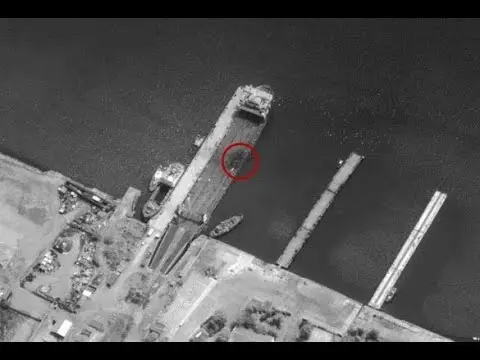

I think that the problem is that the entire article, other than that sentence, consists of a list of bullet points. It’s conventional for articles to sometimes include a list of bullet points with an “executive summary” at the top, and then have the real article below, but this just omits that latter text.






















Well, I don’t know what kind of counter he’s aiming for. There are basically two that I can think of:
Long-range SAMs with sufficient range (and maybe mobility) to strike an aircraft launching glide bombs without being placed at risk. Ukraine’s has had some old long-range Warsaw Pact SAMs, but I don’t think that we’ve got more stores or production capacity. There are Patriots, but those are the only anti-ballistic-missile counter Ukraine presently has; using them as a counter for aircraft will cut into that. I suggested earlier that the SAMP/T systems that France sent, firing Aster missiles – which theoretically have an ABM capability, but at least earlier in the conflict, apparently weren’t intercepting them – might work, if the range is long enough.
Aircraft armed with long-range air-to-air missiles.
Russia’s newest glide bombs, according to this article, probably reach about 90 km.
To use it to directly support the front, that’s about how close they’re going to have to get. Maybe closer if they want to strike behind the front.
The US has the AIM-120. The latest version reaches 160–180 km according to WP. We have other long-range air-to-air missiles in development, but not in production today.
https://en.wikipedia.org/wiki/Long-Range_Engagement_Weapon
https://en.wikipedia.org/wiki/AIM-260_JATM
Europe has the Meteor:
A Ukrainian aircraft firing those will need to do so at high altitude to leverage high range, use the aircraft’s fuel rather than the missile’s. That height will make it visible to Russian air defense, and the aircraft has to avoid getting hit by Russian SAMs.
The longest-range SAM that I’m aware of that Russia has is an S-400 variant:
https://en.wikipedia.org/wiki/S-400_missile_system
That can reach out 400 km with the right missile according to WP.
Now, there are a number of ways one might measure range (from what height? Are these “minimum maximum” ranges or the actual limit? Is this a no-escape range or the furthest the missile can travel? What altitude can it reach at that point?) So I can’t say “this is the range that Ukraine’s going to need” exactly. But if Russia can legitimately reach out about twice as far as any air-to-air missile, it seems to me that that’s going to be a problem for air-to-air missile use unless countermeasures or stealth or similar can prevent Russia from making use of SAMs.
Ukraine has been hitting S-400s with ATACMS, so those are, in turn, under threat.